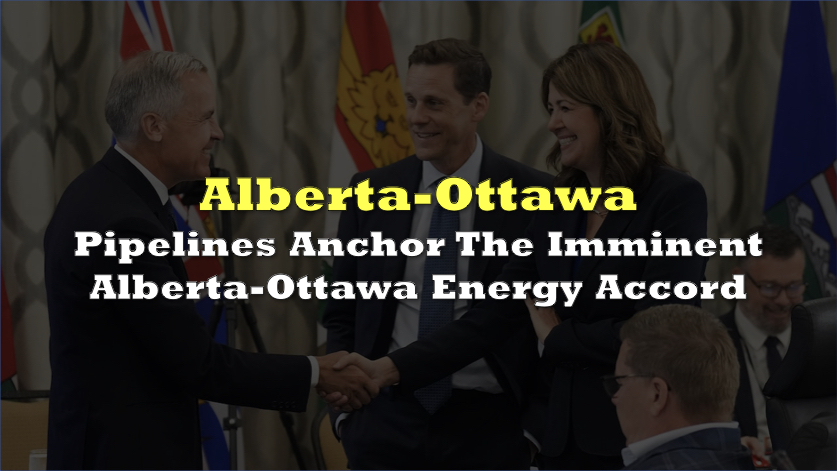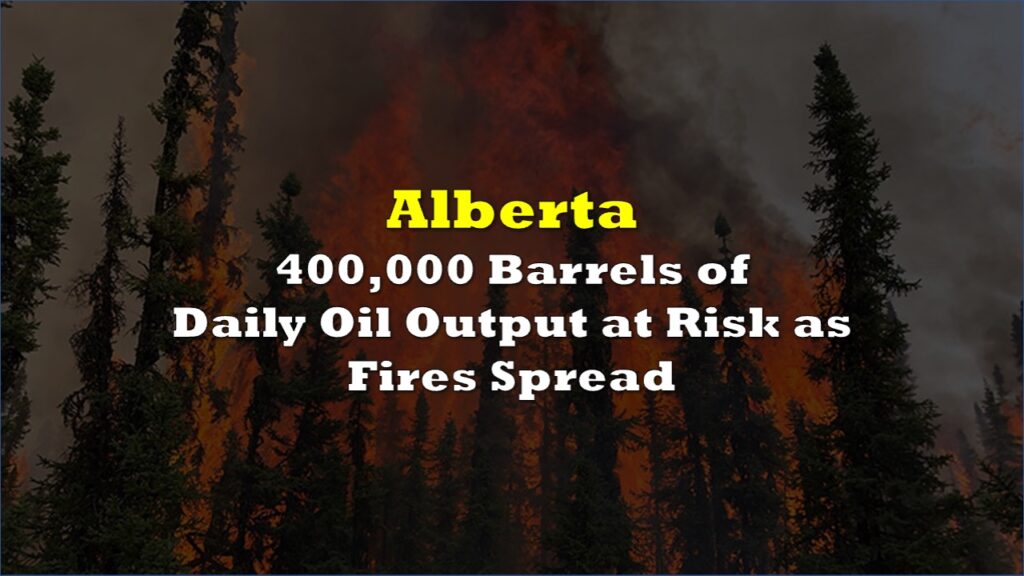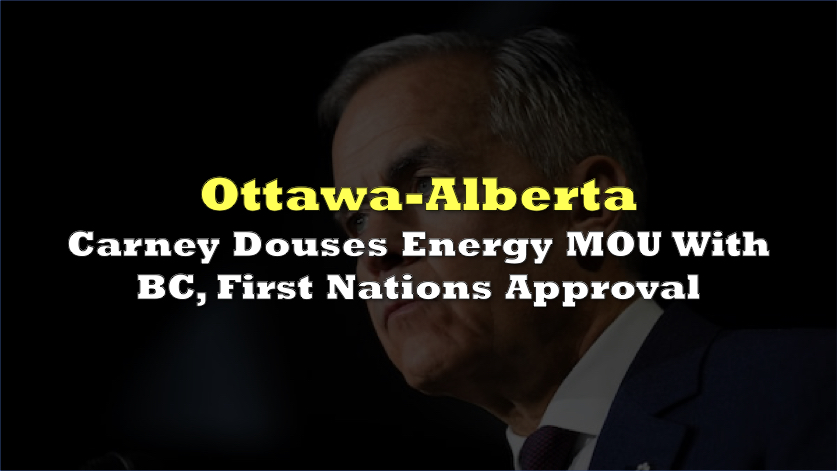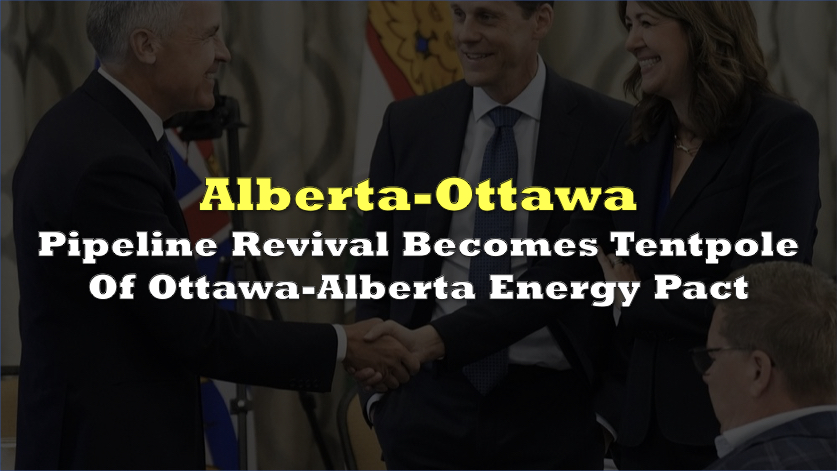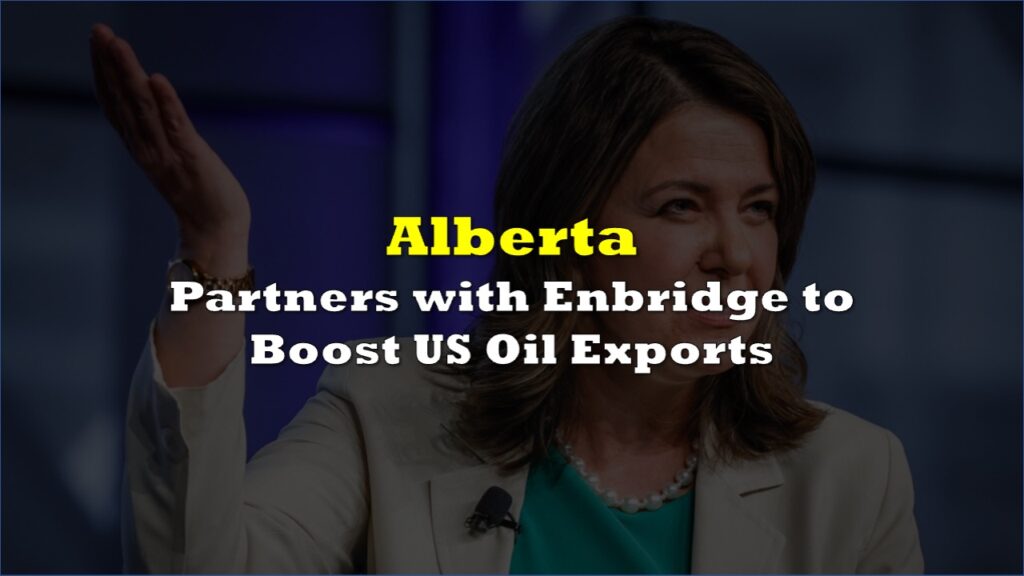Ottawa and Alberta are closing in on a memorandum of understanding that would tie a new oil pipeline to BC’s northwest coast to carbon pricing reforms and looser federal emissions limits.
Two federal insiders said the draft deal, sought by Premier Danielle Smith, centres on a pipeline corridor from Alberta to the BC coast, backed by a limited exemption from the existing federal ban on oil tankers along that shoreline. The same framework would advance changes to industrial carbon pricing to scale up carbon capture technology and would lower or remove the industrial emissions cap that has long been a flashpoint for Alberta producers.
Negotiators in both governments are aiming to have the broad outline ready in time for next weekend’s United Conservative Party of Alberta convention. Smith had originally predicted a deal by Grey Cup Sunday but told reporters Monday that the timeline now depends on whether Prime Minister Mark Carney can bring internal skeptics along.
She said she expected to know “in the matter of days” whether caucus opponents were “influential enough to change the direction that I think the Prime Minister and I want to go.”
The prospective accord also reflects a sharp shift from the strained dynamic that prevailed under the Trudeau government’s energy and environmental policies, according to the sources. Since taking office, Carney has pledged to turn Canada into an energy superpower while still meeting climate commitments, and has elevated energy projects within the list of infrastructure files referred to the federal Major Projects Office, a central instrument of his strategy for asserting Canadian sovereignty.
Carbon capture looms large in the package through the inclusion of the Pathways Alliance proposal, which Carney has now referred to the Major Projects Office. The project is built around a 400-kilometre pipeline designed to move carbon dioxide captured at oil sands facilities to an underground hub near Cold Lake, Alberta, with the stated goal of cutting emissions by 22 megatonnes a year.
Financial supports for Pathways are already on the table but have not yet secured a final investment decision. The Trudeau government created an investment tax credit that would cover up to 50% of the project’s capital costs, while Alberta has offered an additional 12% capital subsidy. Pathways members have so far been reluctant to proceed, citing revenue uncertainty, but the most recent federal budget promised improvements to the industrial carbon pricing regime.
Any northwest BC pipeline contemplated in the MOU would still require a private sector proponent, support from coastal Indigenous communities and full environmental approvals. The sources said it remains unclear whether the agreement would require the formal backing of BC’s NDP government, which is publicly opposed to such a project.
BC Premier David Eby has drawn a hard line against lifting the tanker ban, warning delegates at the BC NDP convention on the weekend that any carve out would undercut First Nations and coastal communities that currently support other resource projects. Some of those projects were only referred to the Major Projects Office last week, heightening concern in Victoria that rule changes for Alberta’s benefit could destabilize existing arrangements.
The MOU could also gesture toward reviving the cancelled Keystone pipeline to the US, according to the insiders, although that file remains parked within broader but stalled trade negotiations with the White House.
Information for this story was found via The Globe And Mail and the sources and companies mentioned. The author has no securities or affiliations related to the organizations discussed. Not a recommendation to buy or sell. Always do additional research and consult a professional before purchasing a security. The author holds no licenses.

